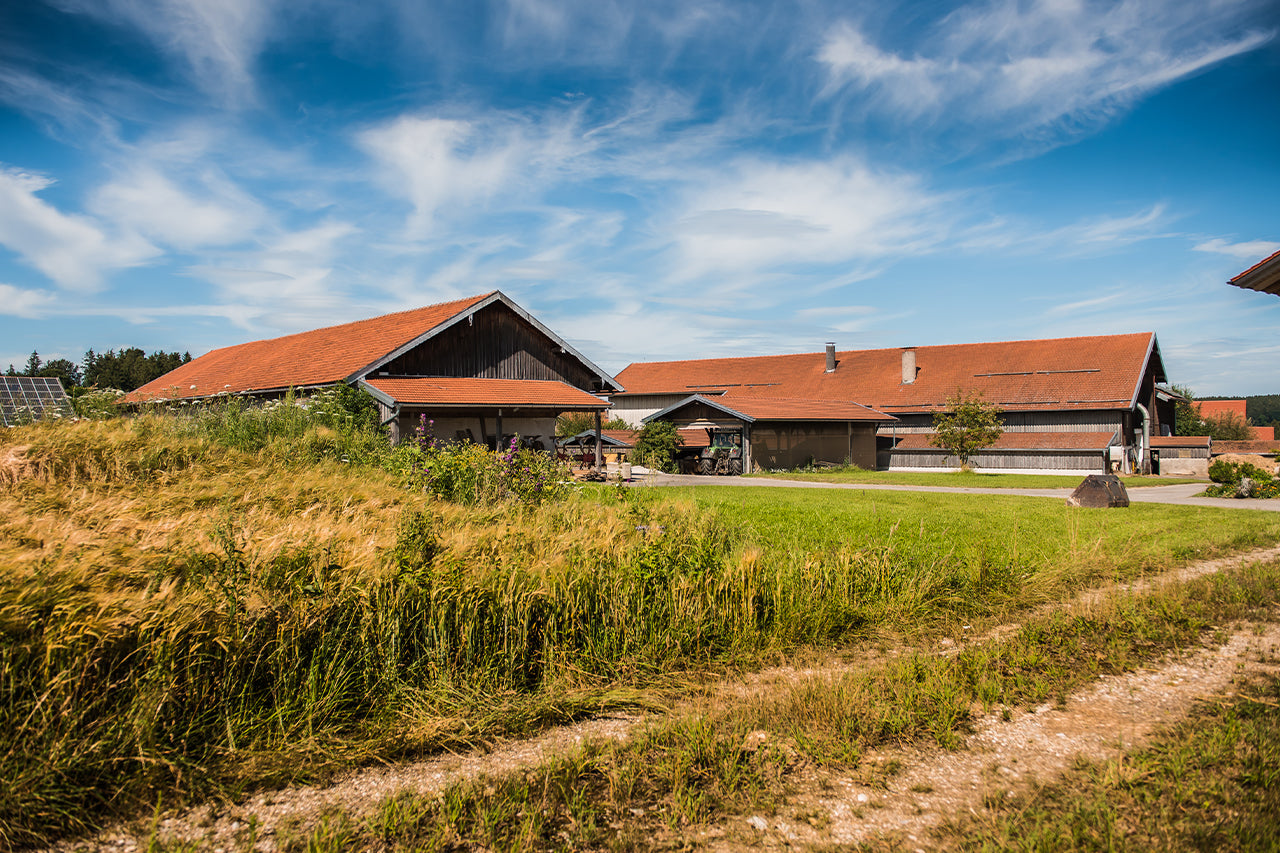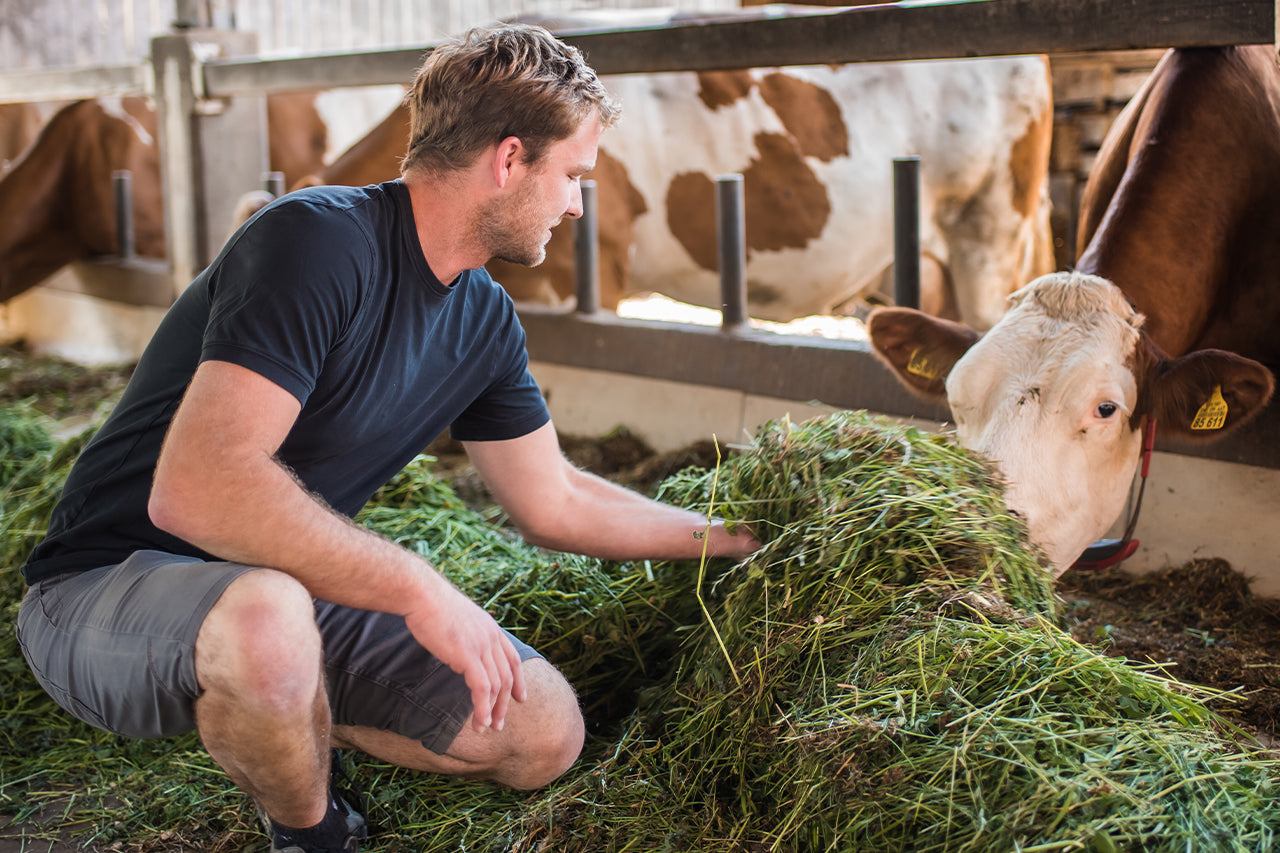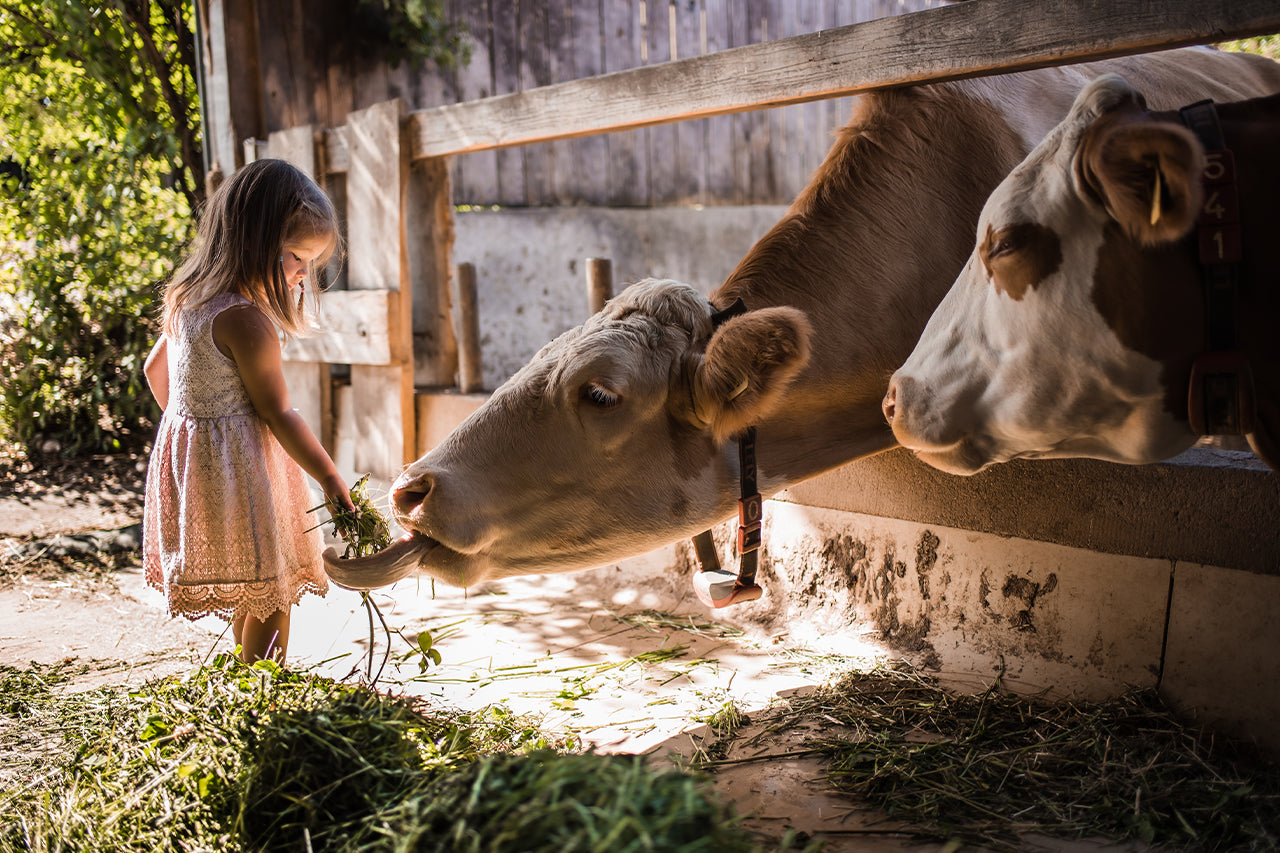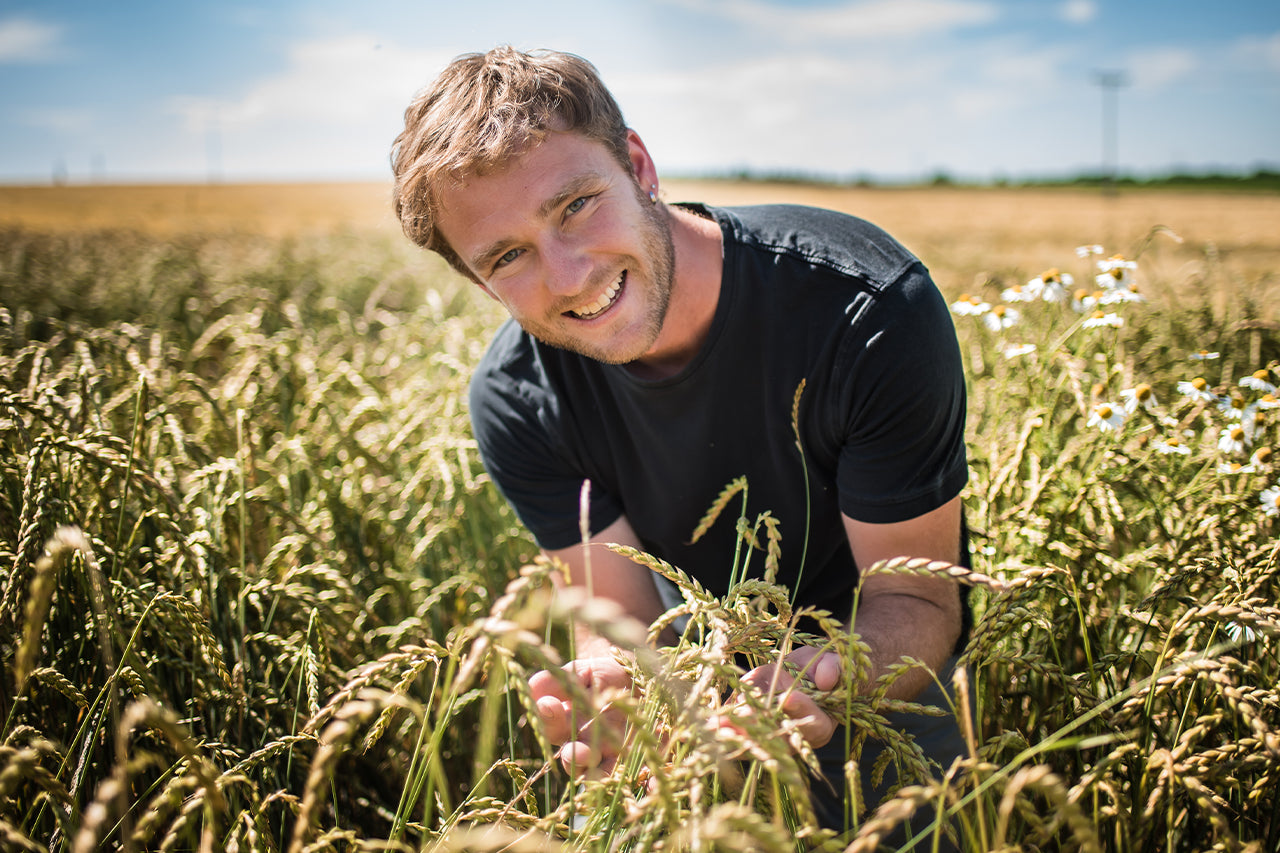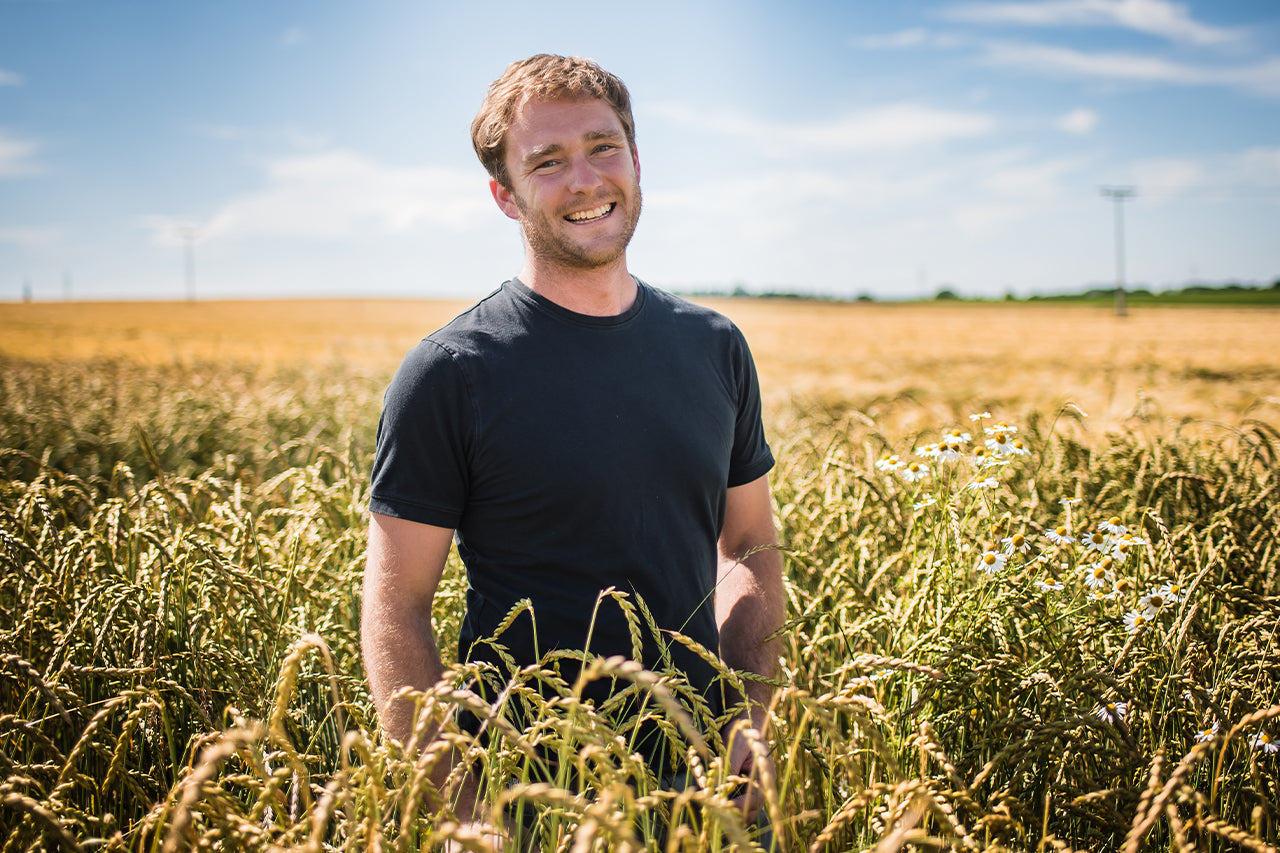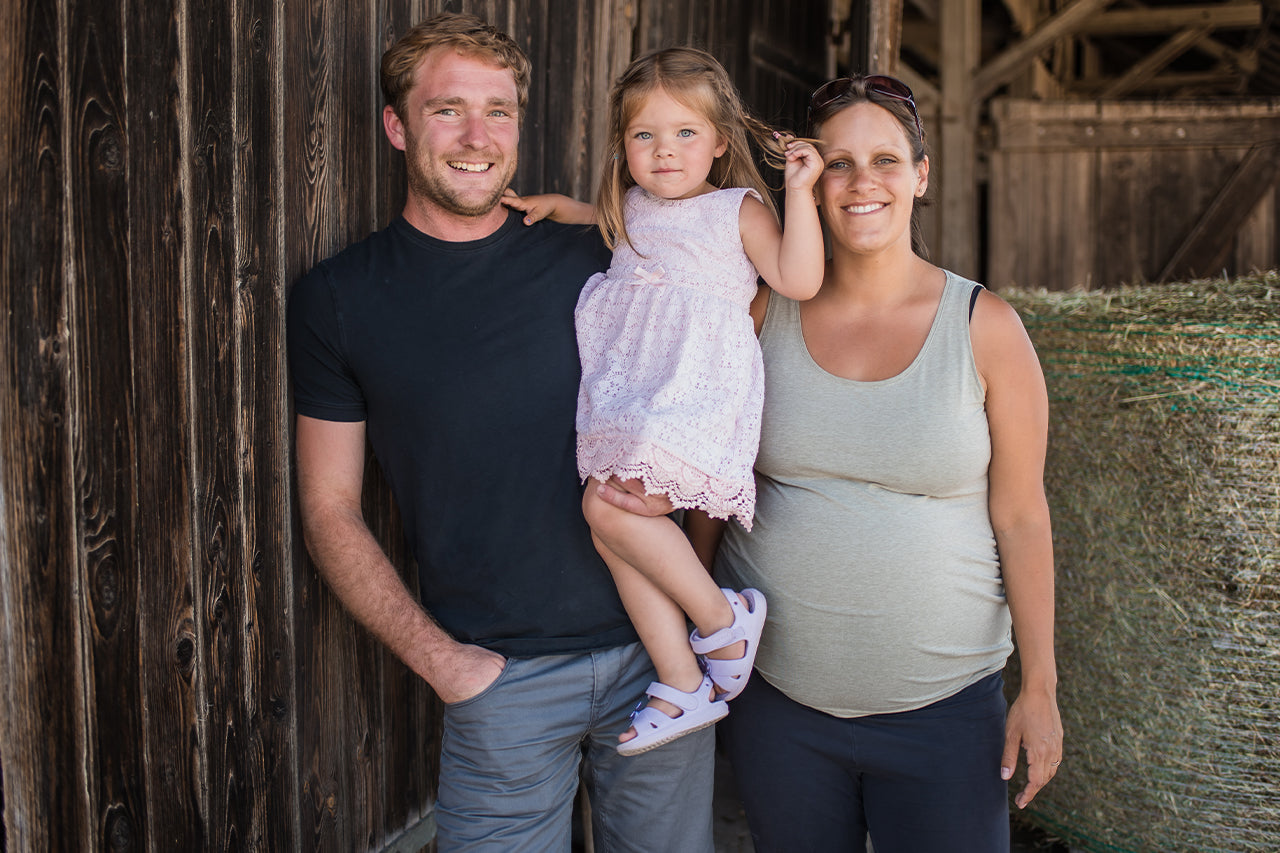Georg Planthaler and his wife Martina have been running the Gremahof full-time since 2014. The farm had already been converted to organic seven years earlier. Since then, the two have been operating according to the guidelines
from Naturland .
In addition to fodder production from grassland, clover grass and maize, they also grow wheat, malting barley and spelt. The family has been working since years with effective microorganisms according to the Rosenheim project. They also try to maintain and improve soil fertility by growing a lot of catch crops.
Georg and Martina run their organic farm in beautiful Chiemgau with crops and 55 dairy cows
In addition to farming, Georg and his wife run a dairy farm with around 55 cows and their offspring.
Organic farmer by conviction
“I like being an organic farmer out of conviction. And so I'm all the more pleased that processing companies such as Barnhouse, but also many other companies such as e.g. B. Agricultural machinery manufacturers or Seed companies face the challenges of organic farming in research and development. I hope that the consumer our offers accepts and also consciously opts for quality from the region when purchasing.”
Sowing spelled just before winter? The layman may wonder whether the still young spelled plants could be damaged by ice and snow. And why doesn't the farmer wait until spring to sow like
eg with oats. "Yes, there are differences," explains the young NATURLAND farmer. “Firstly, there are summer grains such as oats, spring barley and spring wheat, or winter grains such as winter wheat, winter barley, rye and spelt. Winter cereals need hibernation because they have a longer growing season compared to summer crops.”
Of course, the intuition and experience of the organic farmer is also required here. "If however, if the winter grain develops too well in autumn, it can also lead to winter damage. Therefore, the sowing time should not be too early if possible. However, summer cereals tolerate almost no prolonged frost or snow, a few wintry ones days won't kill it either." Georg explains to us when asked. “Winter cereals usually produce more. Summer cereals often have better ingredients for the intended purpose - e.g
Spring barley is used for malting barley, as this has a better quality protein content can be reached. "



